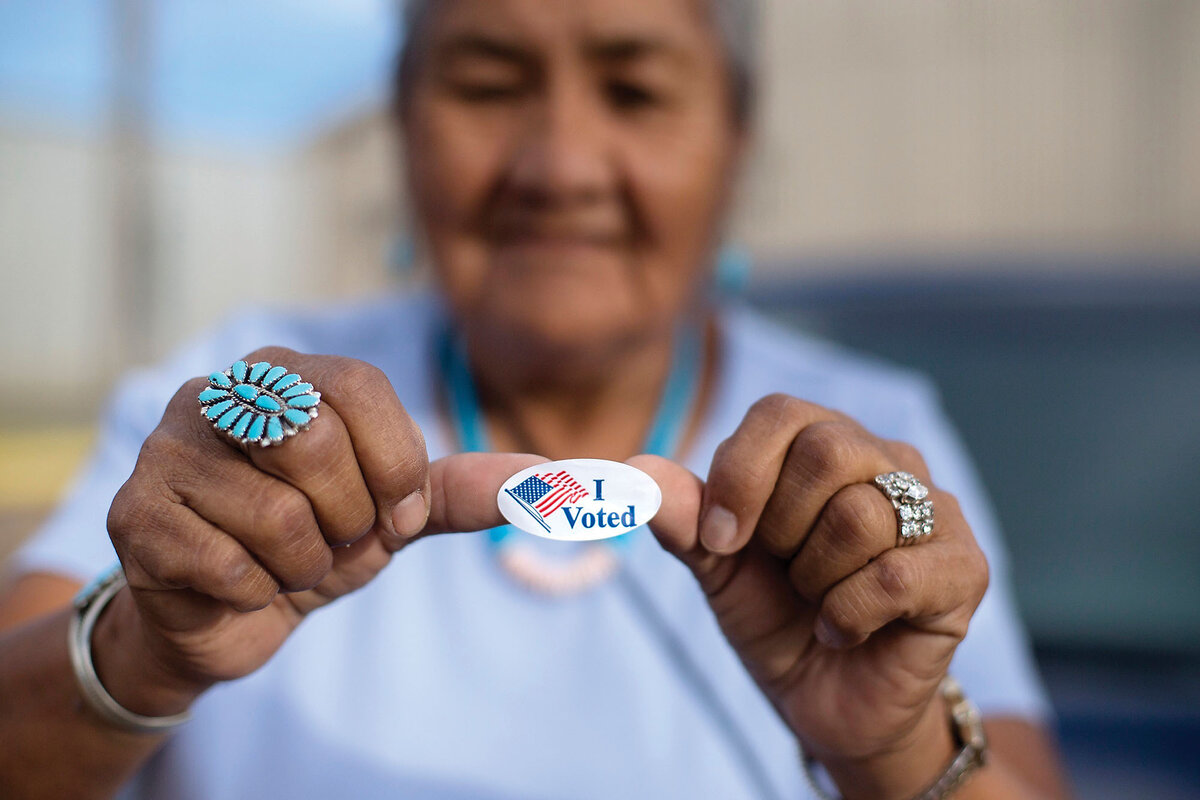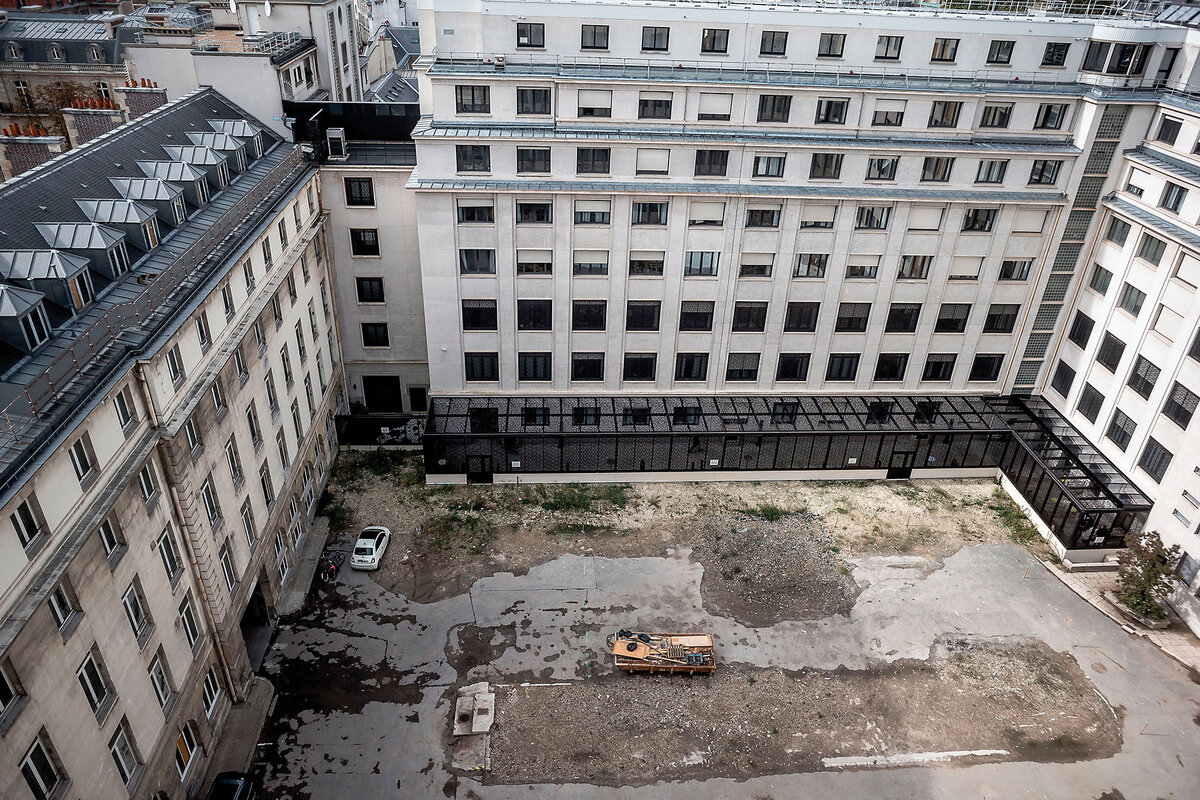Housing projects: Paris curates its streets, and Navajo homes get addresses
Loading...
Navajo Nation residents in Utah received accurate new home addresses to strengthen voting rights
Rural communities often rely on step-by-step, descriptive addresses to access services. But this can lead to logistical snafus, such as emergency vehicles’ delayed response.
Using Google’s open-source Plus Codes, the Rural Utah Project has helped register over 9,000 rural voters, which includes more than 3,100 new addresses for Navajo residents.
Why We Wrote This
Our progress roundup looks at two places people call home and what is being done to enhance life in each. For some Navajo residents, new, reliable street addresses smooth the path to voting. And in Paris, public housing is a sought-after commodity.
Plus Codes are simple combinations of letters and numbers that can be generated for any place on the planet. The United States Postal Service does not recognize Plus Codes, but users have found them beneficial for receiving private parcels and even health care services.
Daylene Redhorse, the project lead in Navajo Nation, fought for the trust of Native Americans, who didn’t have suffrage in every state until the 1960s. Another group, the Navajo Nation Addressing Authority, is working on getting streets named throughout the reservation.
Sources: The Daily Yonder, Yes! Magazine, Rural Utah Project
A women-run city bus program serves one of the poorest areas of Colombia’s capital and is turning a profit
Instituted by term-limited former Mayor Claudia López, the initiative began in 2022 as part of a broader effort to tackle lack of gender equity in Bogotá. The fleet of 195 vehicles is the second-largest electric fleet outside of China.
Sixty percent of La Rolita’s 500 drivers are women, and the program reports fewer accident-related injuries than private bus operators in Bogotá do. General manager Carolina Martinez said that women may feel safer with female drivers in a city where 84.3% of women report experiencing sexual harassment on public transit. Over 100 of the program’s drivers use flexible work hours to care for their families or pursue higher education.
Some drivers say they’ve encountered sexist attitudes from male passengers. Yet La Rolita garnered a 91% satisfaction rating in a city survey, compared with 29.7% for other bus services in Bogotá.
Source: Reasons to Be Cheerful
Under the mixité sociale (diversity) policy, Paris works to keep the city affordable and maintain its character
While property prices have dropped slightly in recent years, the average price for a 1,000-square-foot apartment is €1.3 million ($1.41 million). Today, one-quarter of Parisians live in government-owned housing, and the demand is increasing, with a waitlist of six years. The city can legally buy most properties for sale for conversion to public housing, and has renovated or built more than 82,000 apartments for families in the past three decades.
From florists to bookstores, the city tries to maintain a mix of small businesses in each neighborhood. Paris is landlord to 19% of its shops, which enjoy below-market-rate rent.
Though mixité sociale is expensive, policymakers on the left and right generally agree on its benefits.
“A city, if it’s only made up of poor people, is a disaster,” said Benoist Apparu, a former housing minister in a conservative government. “And if it’s only made up of rich people, it’s not much better.”
Sources: The New York Times, Bloomberg
A fellowship program in Nigeria trains women journalists in investigative reporting
A 2017 survey of 85 Nigerian newsrooms found that men held the vast majority of editorial leadership positions, with a ratio as high as 10 to 2. The Women Radio Centre’s annual workshop provides mentorship, coaching, and resources to support investigative stories.
In 2022 the first weeklong residential program was supported by the MacArthur Foundation, after which participants were given laptops and other tools to aid them in their investigations. For the latest class, the three-day session concluded with each fellow receiving a grant to support future reporting.
The program has limited space, selecting only 20 out of 1,552 applicants from around the country in 2023. It is “a beautiful place to learn, make friends, and network,” said Angela Nkwo-Akpolu. “Embrace it, give it your best, I assure you the benefits will be limitless.”
Sources: BoNews, Reuters Institute for the Study of Journalism, Solutions Journalism Network
With more Māori designs in the landscape, New Zealand celebrates Indigenous architecture and culture
Making up 17% of the population, the Māori are the country’s largest nonwhite ethnic group.
In the suburbs of Auckland, a new meeting house and education center – Taumata o Kupe – soars into the sky. The building’s sail-shaped form and decoration include the story of the first Māori arrival in what is now New Zealand.
Using funds from a settlement with the government, one North Island tribe has built award-winning affordable housing for its members, with features such as shared gardens and playgrounds. Jade Kake, an Indigenous architect whose firm is north of Auckland, designs homes for collective living, where the structures can accommodate changing family patterns.
Auckland’s city council adopted a series of Māori architecture principles in 2016. “The principles can be misused,” said Ms. Kake. “But it’s more about the process than the product, ensuring that the consultation and co-design process is meaningful.”
Source: The Guardian








